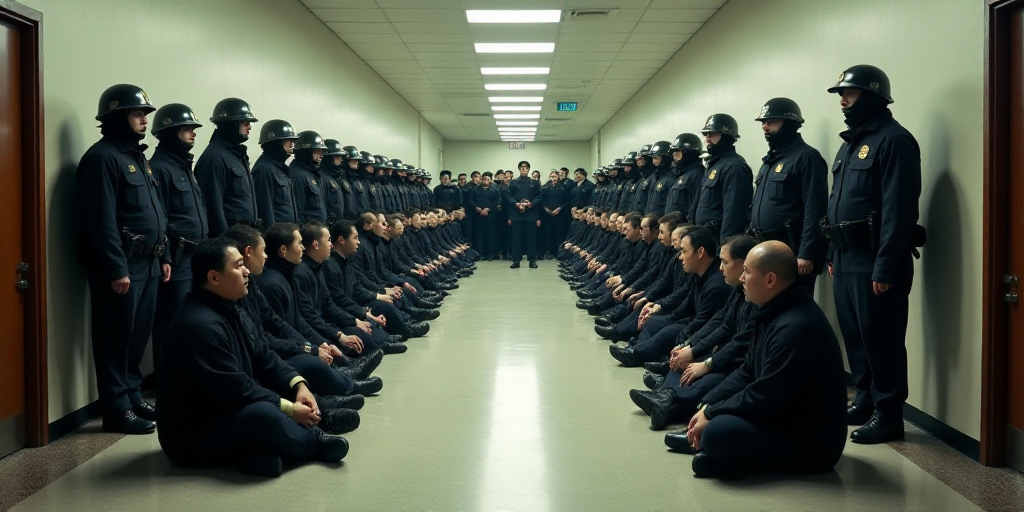Background on the Situation
Venezuela has denounced alleged “torture” of Venezuelan migrants in El Salvador’s notorious megacail for gang members, following their repatriation as part of a prisoner exchange between the United States and Venezuela.
The Repatriation and Allegations
On Monday, Venezuela’s Attorney General, Tarek William Saab, announced an investigation against El Salvador’s President Nayib Bukele and other government officials, accusing them of committing crimes against humanity. Saab stated that 80 prosecutors interviewed the migrants upon their return to Venezuela.
Saab presented videos of returned migrants showing bruises all over their bodies and marks from rubber bullets. One individual had a broken jaw, while another bore a shoulder scar.
Andry Hernández Romero, a 32-year-old hairstylist, described in a video the sexual abuse he experienced and the physical and psychological torture endured in the Centro de Confinamiento del Terrorismo (Cecot).
- “We were subjected to torture, physical and psychological abuse,” Hernández said in the video.
- “I was sexually abused by Salvadoran authorities.”
- “We never thought we’d see our families again.”
Saab also detailed “isolation in inhumane cells, no contact with sunlight or ventilation,” and “systematic attacks with rubber bullets.” He highlighted the provision of spoiled food and non-potable water, as well as lack of access to lawyers or contact with family members.
The Prisoner Exchange
These 252 Venezuelan migrants were labeled as members of the Tren de Aragua, a criminal band that U.S. President Donald Trump declared an “international terrorist organization.” In March, Trump invoked a 1798 Enemy Aliens Act to swiftly expel Venezuelans.
The release was the result of negotiations with U.S. representatives, finalized just hours before the exchange, according to the Venezuelan government.
“The negotiations were solely with the United States of America, the U.S. government,” Venezuelan negotiator and President of the National Assembly, Jorge Rodríguez, stated on Telesur, referring to El Salvador’s President Nayib Bukele as a “puppet” of those responsible for the presence of Venezuelans in the concentration camp.
The exchange also involved the release of 80 other Venezuelans held in Venezuela, deemed “political prisoners” by opponents of Nicolás Maduro’s government. Rodríguez, however, claimed this measure coincided with an internal parallel negotiation process.
Key Questions and Answers
- Who is involved? The situation involves Venezuela, El Salvador, and the United States. Key individuals are Venezuelan Attorney General Tarek William Saab, El Salvador’s President Nayib Bukele, and U.S. President Donald Trump.
- What happened? Venezuela accused El Salvador of torturing its migrants in a notorious megacail. The U.S. and Venezuela conducted a prisoner exchange, with the U.S. releasing 10 of its citizens and residents held in Venezuela, while Venezuela repatriated 252 Venezuelans previously deported to El Salvador.
- What are the allegations? Venezuela’s Attorney General accused El Salvador’s government of committing crimes against humanity, including sexual abuse, physical and psychological torture, inhumane conditions, and denial of legal representation and family contact.
- What is the significance? This incident highlights tensions between Venezuela and El Salvador, as well as the complexities of international migration policies and prisoner exchanges.






